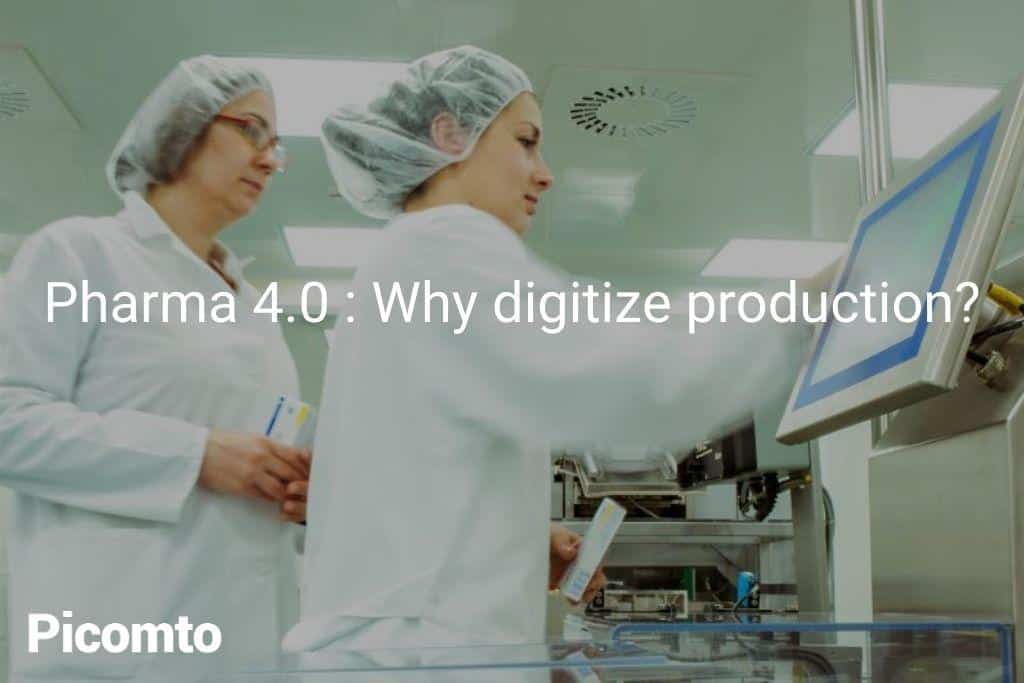
Although the digital transformation is affecting different sectors, the pharmaceutical industry has experienced a slow transition to integrate connected technologies. In fact, this delay can be explained by the delicate and highly regulated nature of this sector. However, the pharmaceutical industry is in the process of transformation and digitalization in the direction of the intelligent factory. We call it Pharma 4.0!
Let’s discover how to digitize production within the pharmaceutical industry and what are the impacts of this transformation!
How to digitize production?
Production remains the most difficult link in the digitalization of the pharmaceutical industry. Production is at the heart of the industry and is therefore heavily regulated within the pharmaceutical industry. In fact, every change in the production chain must be documented and validated beforehand. The expense and investment required to carry out this work thus slows down any transformation.
Beyond this barrier, the digitalization of the pharmaceutical industry is based on the implementation of data collection and analysis technologies. But also software to improve traceability. The big data, the Iot (internet of objects) and the learning machine are the best allies of the digitalization of production.
The implementation of the pharmaceutical industry at the heart of healthcare and health systems means that each transformation must take into account the evolution of all stakeholders. Thus, manufacturers must seek opportunities for digitalization based on the evolution of the entire health sector and the connected technologies that are being introduced.
What are the benefits of digitalization?
Improving production
The pharmaceutical industry must always keep abreast of scientific and technological developments in order to continuously improve. In fact, improving production is part of the continuous improvement process. Digitizing these processes therefore makes it possible to improve production. The use of connected objects to collect data, use the cloud to store it, develop robots, thanks to the learning machine, which are able to analyze this information and decide on better actions to be taken.
Facilitate quality control
The digitization of work tools, communication tools and forms allows manufacturers to improve and facilitate quality control processes. Digitization also enables them to follow the evolution of GMP and to better comply with it.
Optimize series changeover
Changing series has always been a source of loss of time and resources because of the standardization work prior to any production. Thus, applying continuous improvement models such as Kaizen allows to optimize the change of series and thus boost production. Digitized work instructions improve the efficiency of the entire production chain and boost the efficiency of the operators.
The digital work instructions are particularly effective for line clearance (Line clearance).
It’s time to move on to the Pharma 4.0 industry!
Digitalization is a mandatory step for the pharmaceutical industry. However, it must take time to study the opportunities for evolution, test and regulate the processes. Thus, the pharma 4.0 industry is certainly an industry closer to the consumer who knows how to customize its products according to the circumstances.
We accompany you!
Picomto is the specialist in the digitization of work instructions, particularly in the pharmaceutical industry. We offer a GMP and FDA 21 CFR Part 11 compliant software, please contact us for more information!




Leave A Comment